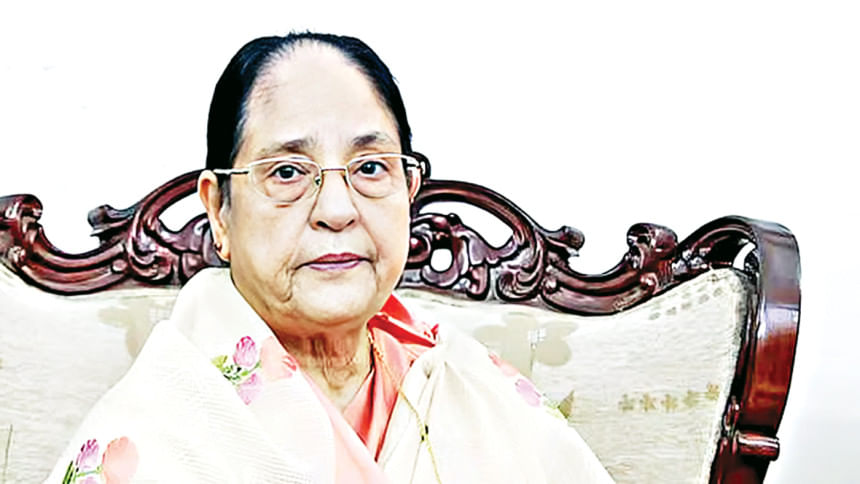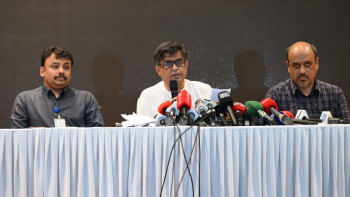Educationist Mahfuza Khanam passes away

Renowned educationist, social worker, and women's rights advocate Mahfuza Khanam passed away in Dhaka yesterday. She was 79.
Mahfuza was also a freedom fighter and a former vice-president of Dhaka University Central Students' Union (DUCSU).
She died at Holy Family Red Crescent Medical College Hospital on Eskaton Road around 12:00pm, her family told this newspaper.
Mahfuza had gone for a swim at the Officers' Club on Bailey Road around 10:00am when she collapsed. She was rushed to the hospital, where doctors declared her dead. She had suffered a heart attack.
Her first namaz-e-janaza was held at her Indira Road residence after Asr prayers yesterday.
Today, her body will be taken to the Central Shaheed Minar and kept there from 10:00am to 11:30am for people to pay their last respects, followed by a tribute at the DUCSU building at 12:00pm.
Her second janaza will be held after Zuhr prayers at the Dhaka University Central Mosque, and she will be laid to rest at Azimpur Graveyard.
Born on April 14, 1946, in Kolkata, Mahfuza graduated from the physics department at Dhaka University in 1966 and completed her master's from the same department the following year.
She served as DUCSU VP for the 1966–67 term as a nominee of the East Pakistan Chhatra Union.
Later, she went on to hold several prominent positions, including the director general of the Directorate of Secondary and Higher Education, president and general secretary of the Asiatic Society of Bangladesh, chairperson of the central Khelaghar Ashor, adviser to Bangladesh Udichi Shilpigoshthi, and member of the Dhaka University Senate.
She taught at various government colleges for many years.
In recognition of her contributions to education, she was awarded the Ekushey Padak in 2021.
She was married to eminent lawyer and former law minister Shafique Ahmed. They had two sons and a daughter.
Political, cultural, and social organisations have expressed their condolences, remembering her as a fearless activist against military rule in the 1960s and a lifelong campaigner for social progress.

 For all latest news, follow The Daily Star's Google News channel.
For all latest news, follow The Daily Star's Google News channel. 



Comments